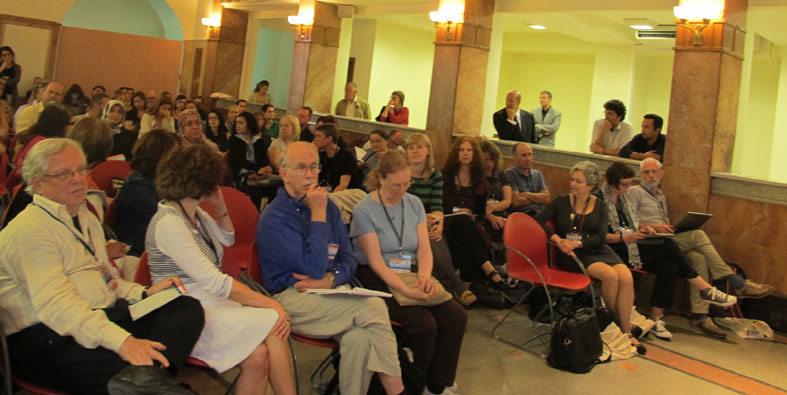East and West Come Together: This Time It’s Emotional
BY ALP RODOPLU (HIST/V)
An international conference on the cultural history of emotions was held in İstanbul September 29 to October 1. Titled "The Cultural History of Emotions in Pre-Modernity II: Emotions in East and West," it was jointly hosted by Bilkent University and Sabancı University.
Bilkent Department of History acting chair Asst. Prof. Mehmet Kalpaklı, with Sabancı University's Dr. Tülay Artan, organized the event, which welcomed five keynote speakers and a large gathering of renowned scholars, researchers and students, who for three days joined forces to discuss and exchange ideas on a vast spectrum of topics relating to the cultural history of emotions.
The conference, the second of a series of conferences started in 2008 at Umeå University in Sweden, was the first ever in this field to look at the cultural history of emotions from the comparative perspective of emotions in the East and West. The papers presented at the meetings and the workshops, with discussions that continued well beyond the set times of the conference agenda, did not only help in the creation of a common ground for the academic examination of emotions. Bringing together scholars and academics from the "orient" as well as the "occident," the dialogue that was achieved also demonstrated the kindred nature of all human subjects: the emotional sensibility that makes possible discourse regarding the nature of human beings in the first place, and essentially disregards geographical as well as temporal limitations.
İstanbul, having always been a bridge between the East and the West, was now, for these three days, not only that very connection between the oriental and the occidental in the light of human emotions, but also a bridge connecting this present we inhabit and a distant past in which we once resided.
Building upon the success of the 2008 conference in Umeå, Bilkent University, Sabancı University, the University of Washington (in Seattle) and Umeå University have been jointly working to develop an international network for scholars and researchers who concentrate on the study of emotions before modernity. This effort welcomes as many and diverse disciplines and approaches as possible, with this year's conference in İstanbul further exploring the various themes introduced during the Umeå gathering. The conference's official website, www.CHEP2011.bilkent.edu.tr (where more details about the organization may be found), lists these themes as: emotions as a historical concept, emotions in religious and political contexts, visual representations of emotions and emotional gestures, the language of emotions and its literary manifestations, music and emotions, the gendering of emotions, sensibility, sentimentalism, love, melancholy and despair.
A glance over the program of the conference illustrates the rich scope of topics that were presented and discussed - topics ranging from "Engendering Shame in Early Modern Swedish Lutheran Society" to "Emotional Reflections of 1453: East and West"; from "Ways of Dealing with Authority: Sarcasm and Irony in Ottoman Women's Poetry" to "Reflection of the Ambivalent Feelings for the Moors/Moriscos in 'Don Quijote'"; and from "Emotions in a 15th-Century Chinese Encyclopedia of Arabic Medicine" to "Wayfarers in Wonderland: Love and Lust in Renaissance Venice."
Indisputably, the conference was a success, as those fortunate enough to have participated can testify. Those who were not so lucky just as indisputably, now await what was shared in Istanbul during those three days to be brought together in a collection and shared with the rest of the world. Because, after all, we are all emotional.
